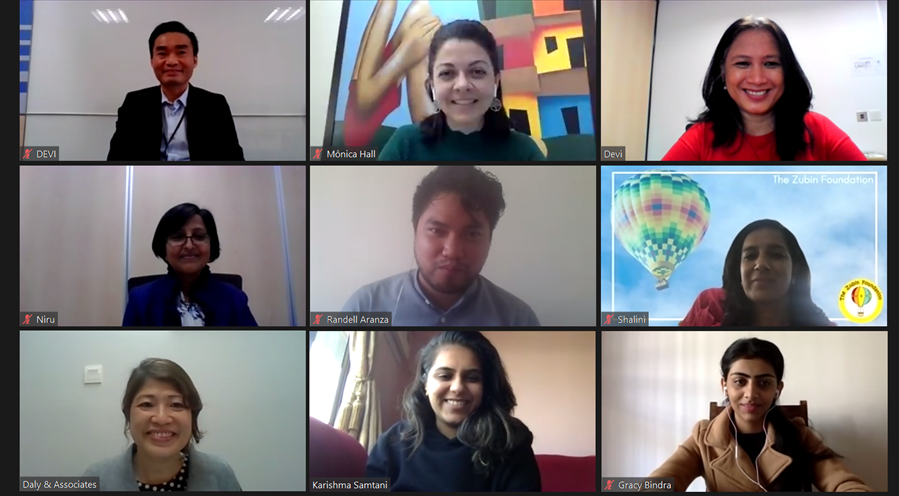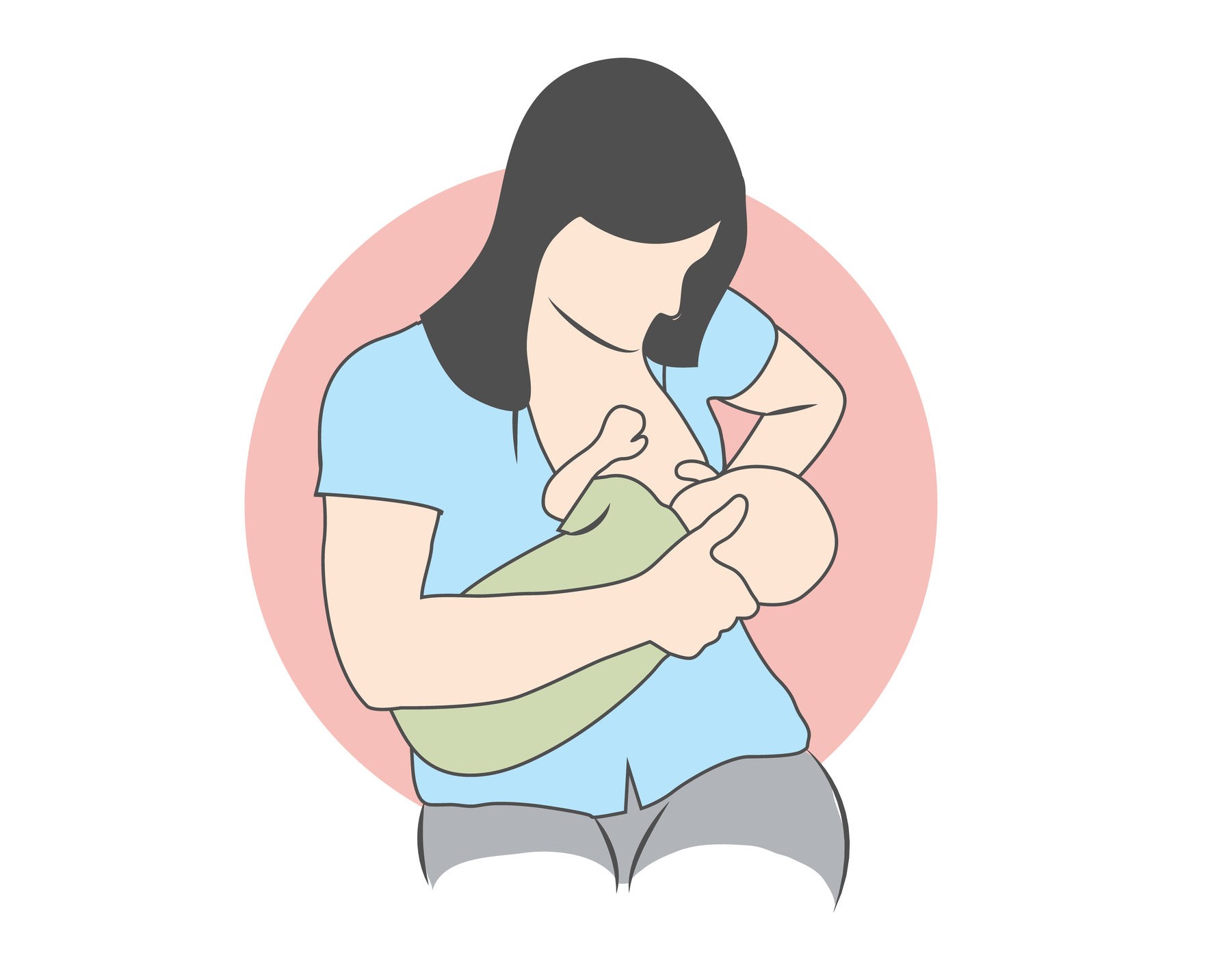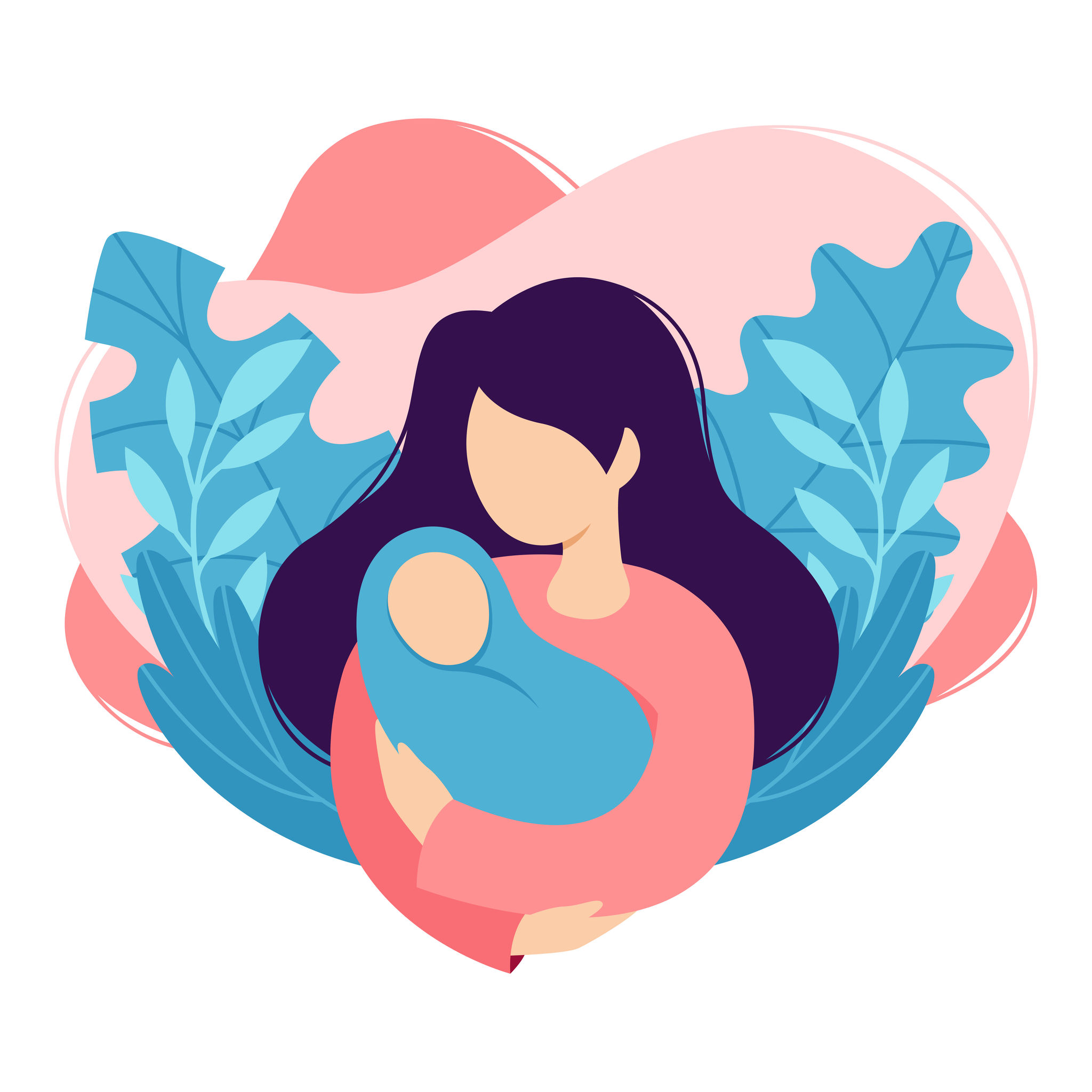
On 3 December 2020, the EOC hosted an online training session for signatories of the Racial Diversity and Inclusion Charter for Employers. Conducted by Ms Monica Zionede HALL, Founder and CEO of FELIZ Consulting, the event revolved around the theme of tackling unconscious bias in the workplace, and attracted over 40 attendees from different sectors.
Through smaller discussions, the participants came to share the view that the key to tackling he problem lies in avoiding hastened decisions, questioning one’s own assumptions and stereotypical beliefs, and speaking up when one sees biased behaviour.
Ms Shalini MAHTANI, Founder and Chief Executive of The Zubin Foundation, was also present to share highlights of the initiatives her organisation had rolled out to improve employment opportunities for local ethnic minority youth. It offered a great opportunity to learn about how companies could collaborate with NGOs to better engage ethnic minority communities in terms of talent acquisition and development and, in the process, overcome their unconscious bias.
Introduced in August 2018, the EOC’s Racial Diversity and Inclusion Charter for Employers (Charter) encourages both public and private organisations to implement best practices in promoting racial diversity and inclusion in the workplace. To date, over 130 organisations have signed the Charter.
Building on the momentum, the EOC has recently launched the Equal Opportunity Employer Recognition Scheme with the aim to recognise employers who have proactively adopted policies to promote not just racial diversity and inclusion, but also equality for men and women, people with different abilities, and people with family status. Details about award categories and eligibility can be accessed with the link below.
More on the Charter
About the Equal Opportunity Employer Recognition Scheme
2

On 3 December 2020, Ms Florence CHAN, Senior Corporate Communications Manager of the EOC gave an interview on RTHK Radio 2 about the provisions relating to breastfeeding discrimination under the Discrimination Legislation (Miscellaneous Amendments) Ordinance 2020. These provisions have amended the Sex Discrimination Ordinance to prohibit direct and indirect discrimination on the ground of breastfeeding in various areas of public life, including employment; the provision of goods, services and facilities; education; management and disposal of premises; clubs; and the performance of Government functions and powers with effect from 19 June 2021.
The law protects any woman who is breastfeeding a child – whether her own or not – and covers situations where a woman is expressing breast milk. A woman who feeds a child with her breast milk, but is not doing so at the time when the relevant act of discrimination is committed, is protected by the law as well.
Aired on RTHK Radio 2’s programme, Made in Hong Kong during the segment “Equal Opportunities Diversity Project”, the interview also featured Dr Rachel CHENG, Senior Medical & Health Officer (Family Health Service) of the Department of Health who talked about the benefits of breastfeeding to children.
In a further effort to foster a breastfeeding-friendly society in Hong Kong, the Government has introduced a bill to prohibit harassment against breastfeeding women, namely the Sex Discrimination (Amendment) Bill 2020 to the Legislative Council on 9 December 2020 for First and Second Reading. Click the link below to learn more.
Listen to the interview (from 14:05-14:23; Cantonese only)
Read the EOC’s publication “Equality for Breastfeeding Women: Guidance for the Employment and Related Sectors”
Read the EOC’s publication “Equality for Breatfeeding Women: Guidance for Other Sectors”
Read the Sex Discrimination (Amendment) Bill 2020
3

With effect from 11 December 2020, Hong Kong’s statutory maternity leave has been extended from 10 weeks to 14 weeks under the Employment (Amendment) Ordinance 2020. The statutory rate of maternity leave pay has been kept at four-fifths of the relevant employee’s average daily wages, subject to a cap of $80,000 per employee for the additional four weeks’ leave. Employers may apply to the Government for full reimbursement of the amount of additional maternity leave pay that is required to be paid and has been paid under the amendment ordinance.
Bringing the city on par with the standard recommended by the International Labour Organization, the change will allow more time and space for mothers to adapt to their new role and breastfeed their newborn child before resuming work. Still, further legislative reform is needed to better protect working mothers from unfavourable treatment, as pointed out in a 2016 report the EOC submitted to the Government. Based on a comprehensive review of the city’s anti-discrimination laws, the report recommended, among other things, the introduction of a statutory right for women to return to their previous role after maternity leave, or a suitable alternative role on similar terms and conditions if the original position no longer exists. Click the link below to learn more.
Read the Labour Department’s press release on the maternity leave extension
Learn more about the reimbursement scheme
Read the EOC’s Discrimination Law Review report
4

The hope for a better life is a universal one, and a powerful driving force behind the decision to leave one’s home. Recognising migration as a global phenomenon and seeking to raise awareness of the importance of safeguarding the human rights and fundamental freedoms of migrants around the world, the United Nations proclaimed 18 December International Migrants Day in 2000.
The COVID-19 pandemic has highlighted both the vulnerabilities and contributions of migrant workers, many of whom perform essential roles such as domestic, service and care workers. Just recently, the International Organization for Migration (IOM) hosted the 20th edition of the International Dialogue on Migration to discuss how migrants’ rights can be better protected amid waves of xenophobia during and beyond the current health crisis. Videos of the panel discussions have been made available on the IOM YouTube channel.
In Hong Kong, migrant domestic workers have had their fair share of challenges since the coronavirus oubreak. The EOC has earlier prepared a list of FAQs explaining how the Disability Discrimination Ordinance may protect migrant domestic workers from COVID-related discrimination during their employment. For details, please click the link below.
Learn more about International Migrants Day
Watch the IOM videos on YouTube
Check out the EOC’s FAQs

 On 3 December 2020, the EOC hosted an online training session for signatories of the Racial Diversity and Inclusion Charter for Employers. Conducted by Ms Monica Zionede HALL, Founder and CEO of FELIZ Consulting, the event revolved around the theme of tackling unconscious bias in the workplace, and attracted over 40 attendees from different sectors.
On 3 December 2020, the EOC hosted an online training session for signatories of the Racial Diversity and Inclusion Charter for Employers. Conducted by Ms Monica Zionede HALL, Founder and CEO of FELIZ Consulting, the event revolved around the theme of tackling unconscious bias in the workplace, and attracted over 40 attendees from different sectors. 

